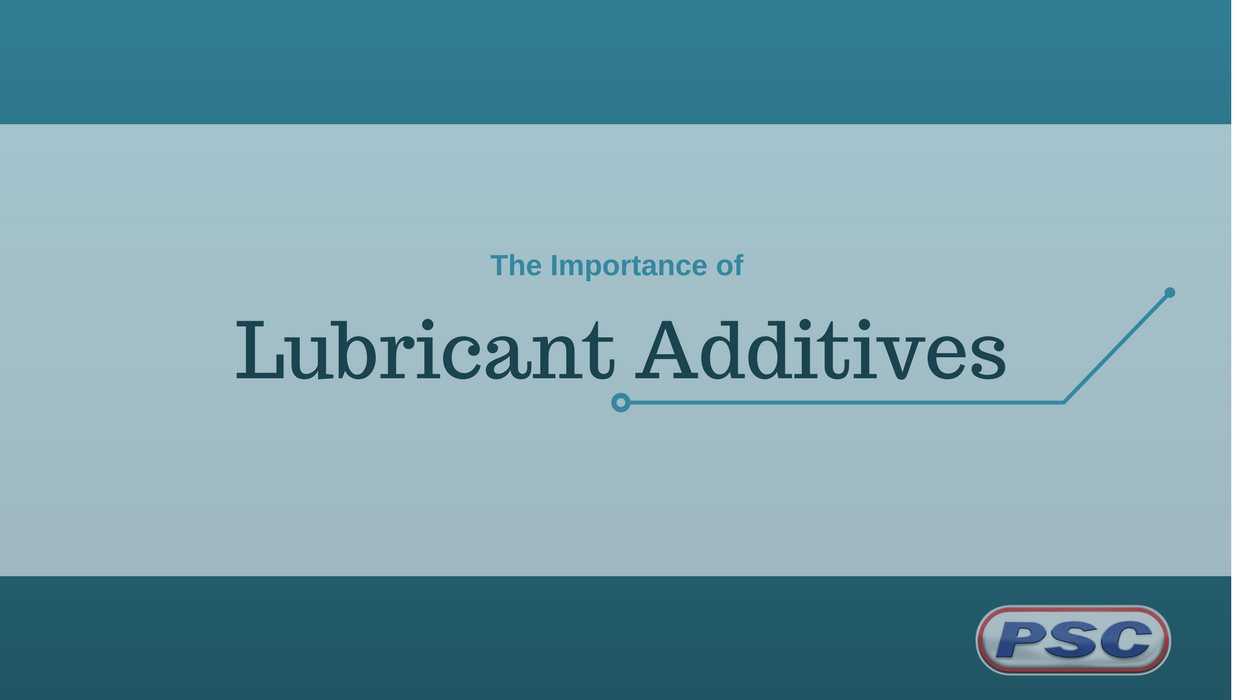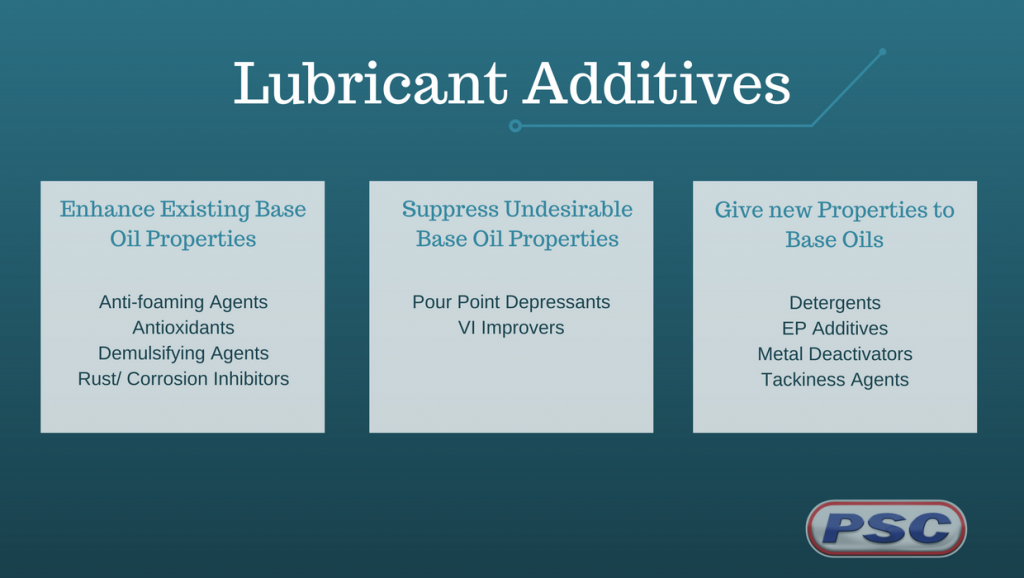Why Lubricant Additives are Important
By on Oct 25 2017

There's a reason why additives are added to your lubricating oil; in fact, there are plenty of reasons, all of which are important for its performance characteristics.
When it comes to lubricants, they start out with a simple formula: base oil + additives. Typically, around 90% of that composition is made from base oil, while the remaining 10% is composed of various additives. The base oil can be one or more of five groups, as designated by the American Petroleum Institute (API). This ratio is not solid, though. Depending on the lubricant and the use, additives can range from only 0.1% to upwards of 30% of the oil's total volume.
Base oil viscosity is the most important property of a lubricant; however, it isn't the only important factor. While only a relatively small fraction of the lubricant's make-up, additives are a crucial factor in choosing the proper lubricant.
Additives are organic or inorganic molecules either dissolved or suspended as solids in the lubricating oil. They are used to impart specific characteristics to any given oil-based lubricant. Naturally, these additives will vary across the different types and uses of lubricants.
Generally, additives serve three basic roles:
- Improve existing base oil properties
- Suppress the base oil's undesirable properties
- Give base oils new properties

When it comes to additives, more isn't always better. You can have too much of a good thing. In some cases, there isn't any more benefit gained with more use. Sometimes, performance isn't improved at all but duration of service increases. As with many things, sometimes additive use is give-and-take; when you improve one property of the oil, it may degrade the other. Further, unbalanced concentrations of additives may also affect the overall oil quality. This is why finished lubricant manufacturers are against supplemental additives being added to their products. Even with the best intentions, upsetting the additive balance of finished lubricants can severely damage equipment.
The Current State of Additives
Lubricant additives are increasingly being needed in direct connection to new lubricant specifications. Energy conservation, GHG regulations, and the modernization of vehicle fleets and heavy equipment all call for higher performance oils. And how do we get our mineral- and synthetic-based lubricants to perform up to snuff with these new regulations? With additives.
Lubricant additives are categorized into several key segments:
- Automotive
- Industrial engine oil
- General industrial oil
- Metalworking fluids
- Grease
- Process oils
While automotive uses represent the largest segment of growth for lubricant additives (thanks to the growing vehicle parc and the modernization of fleets), lubricant additive consumption, in general, is on the rise. This growth is expected to continually grow at a compound annual rate of 0.7% from 2016 to 2021. Currently, automotive lubricants account for two-thirds of the lubricant additives market. Passenger car motor oil is actually now beating heavy-duty motor oil in terms of volume.
Looking for higher performing lubricants? Petroleum Service Company carries the highest quality industrial and automotive lubricants.
Sources:






